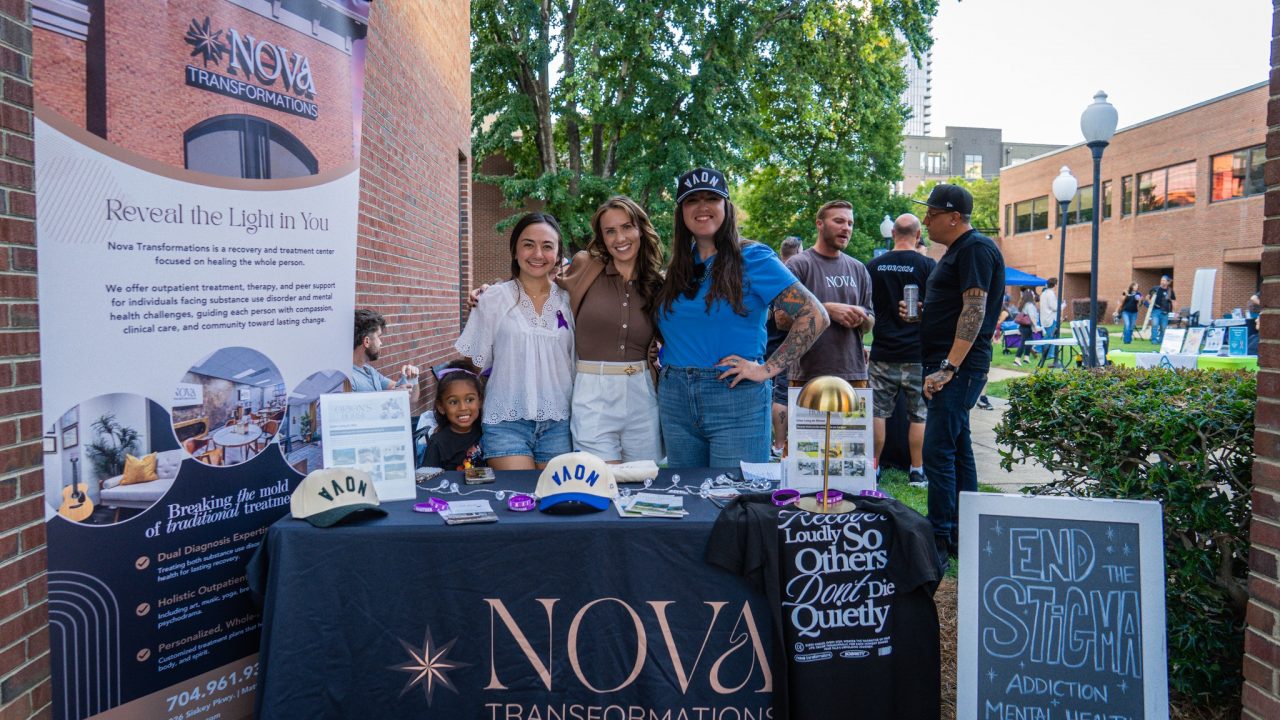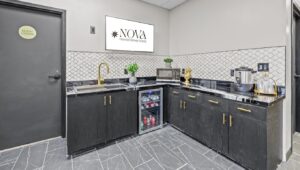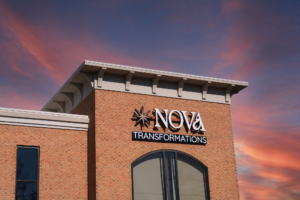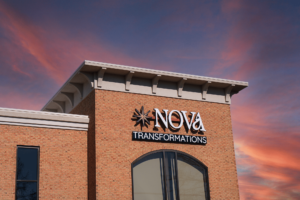
Substance Use Disorder Treatment Charlotte NC: Comprehensive, Evidence-Based Care at Nova Transformations
Substance use disorder treatment Charlotte NC families trust starts here. At Nova Transformations (Matthews/Charlotte metro), we provide the region’s most comprehensive addiction treatment combining evidence-based therapies, specialized dual diagnosis care, medication-assisted treatment, and personalized support that addresses the whole person. Whether you’re struggling with alcohol, opioids, stimulants, or polysubstance use—and whether you’re dealing with co-occurring mental health conditions—our experienced team delivers proven treatment that transforms lives.
Educational content only; not medical advice. For emergencies, call 911 or text 988.
Understanding Substance Use Disorder (SUD)
Substance use disorder treatment Charlotte NC begins with understanding that addiction is a complex medical condition affecting brain function and behavior. According to the Substance Abuse and Mental Health Services Administration (SAMHSA), substance use disorder is defined as a treatable mental health condition characterized by uncontrolled use of substances despite harmful consequences.
Defining Substance Use Disorder:
The SAMHSA Treatment Locator and North Carolina Department of Health and Human Services recognize SUD as a chronic disease similar to diabetes or heart disease. The American Psychiatric Association’s DSM-5 identifies 11 criteria for diagnosing substance use disorders:
- Using more substance or using longer than intended
- Wanting to cut down or quit but being unable to
- Spending significant time obtaining, using, or recovering from substance use
- Cravings or strong urges to use the substance
- Failing to fulfill major obligations at work, school, or home
- Continuing use despite social or interpersonal problems
- Giving up important activities because of substance use
- Using substances in physically hazardous situations
- Continuing use despite knowledge of physical or psychological problems
- Tolerance (needing increasing amounts to achieve desired effect)
- Withdrawal symptoms when substance use is stopped or reduced
Mild SUD: 2-3 symptoms • Moderate SUD: 4-5 symptoms • Severe SUD: 6+ symptoms
SUD as a Brain Disease:
The National Institute on Drug Abuse (NIDA) explains that addiction fundamentally changes brain structure and function, particularly in areas responsible for reward, motivation, memory, judgment, and self-control. These neurological changes explain why people with SUD can’t simply “stop” through willpower alone and why professional treatment is essential.
The Treatable Nature of SUD:
While chronic, substance use disorder is highly treatable. Research published in the National Institutes of Health database demonstrates that evidence-based treatment significantly improves outcomes, reduces substance use, decreases criminal behavior, improves employment, and enhances overall quality of life. At Nova Transformations, we apply these proven principles daily.
The Substance Abuse Crisis in Charlotte & Mecklenburg County
Understanding local context is crucial for effective substance use disorder treatment Charlotte NC. Mecklenburg County faces significant substance abuse challenges requiring specialized, accessible treatment.
Local Data & Statistics:
According to the Mecklenburg County Opioid and Substance Use Disorder Task Force:
- 237 overdose deaths in Mecklenburg County in 2021
- 167% increase in opioid-related deaths between 2010-2020
- 38% of driving fatalities are alcohol-related (vs. 13% national average)
- 356 opioid overdose ED visits in 2019 alone
- Fentanyl involvement in the majority of opioid-related deaths
The Mecklenburg County Community Support Services provides ongoing monitoring and response coordination, while the Community Health Assessment tracks trends in substance use patterns, treatment needs, and health impacts across the county.
Statewide Context:
North Carolina experienced a 40% increase in overdose deaths from 2019 to 2020, with nine North Carolinians dying daily from drug overdoses. The NC DHHS alcohol-related harms data and NC BRFSS excessive drinking indicators show concerning trends in both alcohol and drug use.
The Need for Quality Treatment:
These statistics represent real people—family members, friends, neighbors, colleagues—who need accessible, effective treatment. The More Powerful NC initiative emphasizes that comprehensive, evidence-based treatment saves lives and strengthens communities.
Substances We Treat: Comprehensive Care for All Addictions
Nova Transformations provides specialized substance use disorder treatment for all types of addiction and substance abuse:
Alcohol Use Disorder
Our comprehensive alcohol rehab program addresses the most commonly abused substance. According to the CDC, excessive alcohol use causes approximately 140,000 deaths annually. We provide medical detox coordination, FDA-approved medications (naltrexone, acamprosate, disulfiram), evidence-based therapy, and comprehensive support for lasting sobriety.
Opioid Use Disorder
Specialized treatment for all opioids including:
- Prescription opioids: OxyContin, Percocet, Vicodin, hydrocodone, morphine
- Heroin: Our heroin addiction program provides comprehensive care
- Fentanyl & synthetic opioids: Our fentanyl treatment program addresses the deadliest opioid crisis
We offer full medication-assisted treatment (MAT) with buprenorphine (Suboxone), naltrexone (Vivitrol), and methadone coordination as recommended by SAMHSA’s MAT guidelines.
Stimulant Use Disorder
- Methamphetamine (meth): Comprehensive care addressing severe physical and psychological effects
- Cocaine/crack cocaine: Evidence-based treatment for stimulant addiction
- Prescription stimulants: Treatment for Adderall, Ritalin, and other amphetamine misuse
Benzodiazepine Dependence
Safe medical detox and treatment for Xanax, Valium, Klonopin, Ativan, and other benzodiazepines. Benzodiazepine withdrawal can be life-threatening and requires medical supervision.
Marijuana Use Disorder
While debates about legalization continue, cannabis use disorder is real and treatable. We provide evidence-based care for those unable to control marijuana use despite negative consequences.
Polysubstance Use
Many individuals use multiple substances simultaneously. Our clinical team has specialized expertise in treating complex polysubstance use patterns requiring comprehensive, individualized care.
Evidence-Based Treatment: The Science Behind Recovery
The foundation of effective substance use disorder treatment is evidence-based practice. Nova Transformations exclusively employs therapies proven effective through rigorous scientific research.
What Are Evidence-Based Practices?
Evidence-based practices (EBPs) are treatment approaches validated through controlled research studies, peer-reviewed publications, and replication across diverse populations. SAMHSA and NIDA endorse these practices as the gold standard for addiction treatment.
Our Core Evidence-Based Therapies:
Cognitive Behavioral Therapy (CBT)
The most researched and validated therapy for substance use disorders. CBT helps clients identify and change thought patterns and behaviors that contribute to substance use. Decades of research demonstrate CBT’s effectiveness for virtually all types of addiction.
Dialectical Behavior Therapy (DBT)
Originally developed for complex mental health conditions, DBT provides powerful skills for emotional regulation, distress tolerance, mindfulness, and interpersonal effectiveness—all critical for addiction recovery.
Motivational Interviewing (MI)
Research-backed approach that strengthens internal motivation and resolves ambivalence about change. MI is particularly effective in early treatment stages and with clients initially resistant to change.
Contingency Management
Evidence-based approach using positive reinforcement to encourage abstinence and treatment engagement. Research shows contingency management significantly improves outcomes for stimulant use disorders.
Trauma-Informed Care
Recognizing the profound connection between trauma and addiction, we employ trauma-specific therapies including EMDR (Eye Movement Desensitization and Reprocessing) and trauma-focused CBT.
Why Evidence-Based Treatment Matters:
Choosing a facility that uses evidence-based practices ensures you receive care proven effective rather than unproven, experimental, or trendy approaches. The North Carolina Alcoholism and Chemical Dependency Programs emphasize that EBPs are essential for quality treatment outcomes.
Dual Diagnosis: Treating Co-Occurring Mental Health Conditions
One of Nova Transformations’ core strengths is our specialized dual diagnosis treatment program. Approximately 50% of individuals with substance use disorders also experience co-occurring mental health conditions.
Common Co-Occurring Conditions:
- Depression & Mood Disorders: Major depressive disorder, persistent depressive disorder, mood dysregulation
- Anxiety Disorders: Generalized anxiety disorder, panic disorder, social anxiety disorder, phobias
- Post-Traumatic Stress Disorder (PTSD): Combat trauma, childhood trauma, assault, accidents
- Bipolar Disorder: Type I, Type II, cyclothymic disorder
- Attention-Deficit/Hyperactivity Disorder (ADHD): Inattentive, hyperactive, combined presentations
- Eating Disorders: Anorexia, bulimia, binge eating disorder
- Personality Disorders: Borderline, antisocial, narcissistic, avoidant
- Psychotic Disorders: Schizophrenia, schizoaffective disorder
Why Integrated Treatment Is Essential:
The NC DHHS emphasizes that treating substance use without addressing mental health—or vice versa—leads to poor outcomes and high relapse rates. Many people begin using substances to self-medicate mental health symptoms. Treating only the addiction leaves underlying conditions untreated, driving return to substance use.
Our Integrated Dual Diagnosis Approach:
- Comprehensive psychiatric evaluation by licensed providers
- Accurate diagnosis of all conditions
- Medication management when clinically appropriate
- Integrated therapy addressing both addiction and mental health simultaneously
- Specialized trauma treatment for PTSD and complex trauma
- Coordinated care with outside psychiatric providers when needed
- Family education about co-occurring conditions
Our clinical team includes licensed clinical social workers (LCSW), licensed professional counselors (LPC), certified addiction counselors (LCAS), psychiatrists, psychiatric nurse practitioners, and medical doctors—ensuring comprehensive expertise in both addiction and mental health treatment.
Medication-Assisted Treatment (MAT): Gold Standard Care
SAMHSA research establishes medication-assisted treatment as the gold standard for opioid and alcohol use disorders. Nova Transformations provides comprehensive MAT services.
What Is MAT?
MAT combines FDA-approved medications with counseling and behavioral therapies to treat substance use disorders. Research demonstrates that MAT:
- Reduces overdose deaths by 50% or more
- Increases treatment retention and completion
- Decreases illicit drug use and criminal activity
- Improves employment and quality of life
- Reduces transmission of infectious diseases
- Supports long-term recovery
MAT for Opioid Use Disorder:
Buprenorphine (Suboxone, Subutex)
Partial opioid agonist that reduces cravings and withdrawal symptoms without euphoria. Can be prescribed in office-based settings. Highly effective for opioid dependence.
Naltrexone (Vivitrol – monthly injection)
Opioid antagonist that blocks opioid effects and reduces cravings. Requires complete detoxification before starting. Prevents relapse and reduces overdose risk.
Methadone
Long-acting opioid agonist dispensed through specialized clinics. Highly effective for severe opioid dependence. We coordinate with quality methadone programs when appropriate.
MAT for Alcohol Use Disorder:
Naltrexone
Reduces alcohol cravings and blocks rewarding effects. Available as daily pill or monthly injection (Vivitrol).
Acamprosate (Campral)
Reduces cravings and helps maintain abstinence by normalizing brain chemistry disrupted by chronic alcohol use.
Disulfiram (Antabuse)
Creates unpleasant reaction if alcohol is consumed, providing deterrent effect. Used in motivated patients committed to abstinence.
Comprehensive MAT Services:
Nova’s medical team provides:
- Medical evaluation and medication selection
- Medication induction and stabilization
- Ongoing medication management and monitoring
- Side effect management
- Integration with therapy and counseling
- Family education about medications
- Long-term maintenance support
Levels of Care: Finding the Right Treatment Intensity
Effective substance use disorder treatment matches care intensity to individual needs. Nova offers multiple levels of care:
Medical Detoxification
Medically supervised withdrawal management, typically 3-7 days. Essential for alcohol, benzodiazepines, and opioids where withdrawal can be dangerous. While Nova doesn’t provide on-site detox, we coordinate with quality Charlotte-area detox facilities and arrange seamless transitions to our programs.
Residential/Inpatient Treatment
24-hour care in a residential setting, typically 30-90 days. Provides maximum structure, intensive therapy, medical monitoring, and separation from triggering environments. Best for severe addiction, unstable housing, or significant co-occurring conditions.
Partial Hospitalization Program (PHP)
Intensive structured treatment 5-6 days per week, 6+ hours daily. Clients return home evenings. Nova’s PHP provides high-level care while maintaining some community connection. Typically runs 30-60 days. Appropriate for those needing intensive treatment who can safely return home.
Intensive Outpatient Program (IOP)
Treatment 3-5 days per week, typically 3 hours per session. Allows maintenance of work, school, and family responsibilities. Nova’s IOP offers flexible scheduling including evening options. Generally lasts 8-12 weeks but can extend based on progress.
Outpatient Treatment (OP)
Less intensive care, 1-3 sessions weekly. Appropriate for step-down from IOP or for individuals with strong support systems and lower-risk substance use. Includes ongoing therapy, relapse prevention, and recovery maintenance.
Aftercare & Continuing Support
Ongoing support after formal treatment through alumni groups, 12-step programs, SMART Recovery, individual therapy, and regular check-ins. Critical for long-term recovery success.
Determining Appropriate Level:
Level of care is determined through comprehensive assessment using ASAM (American Society of Addiction Medicine) criteria considering:
- Acute intoxication and withdrawal potential
- Biomedical conditions and complications
- Emotional, behavioral, and cognitive conditions
- Readiness to change
- Relapse, continued use, and continued problem potential
- Recovery environment
The Nova Difference: Why We Lead Charlotte in Outcomes
What makes Nova Transformations the premier choice for substance use disorder treatment Charlotte NC?
1. Proven Clinical Excellence
Exclusive use of evidence-based practices validated through research. Our outcomes consistently exceed regional averages for treatment completion, sustained sobriety, and quality of life improvements.
2. Specialized Dual Diagnosis Expertise
True integrated treatment for co-occurring conditions. Many facilities claim dual diagnosis capability but lack qualified mental health staff. Nova employs licensed mental health professionals and psychiatric providers delivering expert co-occurring disorder care.
3. Comprehensive MAT Program
Full medication-assisted treatment services for opioid and alcohol use disorders. Medical team experienced in all FDA-approved medications and protocols.
4. Individualized Treatment Planning
No cookie-cutter programs. Every client receives personalized treatment plans developed collaboratively and adjusted throughout care based on progress and emerging needs.
5. Experienced, Credentialed Staff
Licensed clinicians meeting or exceeding NC credentialing requirements. Many staff have personal recovery experience bringing authenticity and hope. Low staff-to-client ratios ensure adequate individual attention.
6. Holistic Approach
Treating the whole person—mind, body, spirit. Integration of nutrition, fitness, mindfulness, experiential therapies, and life skills development alongside clinical treatment.
7. Family-Centered Care
Recognizing addiction as a family disease. Comprehensive family services including therapy, education, support, and healing for the entire family system.
8. Robust Aftercare
Extensive continuing care ensuring long-term success. Alumni support, community resource connections, ongoing therapy coordination, and regular follow-up.
9. Insurance Accessibility
Accepting most major insurance providers. Transparent about costs and coverage. Assistance with insurance verification and benefit maximization.
10. Charlotte-Area Convenience
Matthews location provides peaceful setting while remaining accessible to Charlotte, Mecklenburg County, and surrounding areas. Family visits welcomed and encouraged.
Assessment & Admission Process
Beginning substance use disorder treatment at Nova is straightforward and compassionate:
Step 1: Initial Contact
Call (704) 420-7686 24/7 or complete our confidential contact form. Our admissions team answers questions, explains programs, and begins the assessment process.
Step 2: Insurance Verification
We verify insurance benefits quickly using our online verification tool or phone. We explain coverage, out-of-pocket costs, and payment options clearly and transparently.
Step 3: Comprehensive Assessment
Licensed clinician conducts thorough evaluation covering:
- Substance use history and patterns
- Mental health evaluation
- Medical history and current health
- Trauma history
- Family dynamics and relationships
- Living situation and support system
- Work, school, and life responsibilities
- Previous treatment experiences
- Personal goals and readiness for change
Step 4: Treatment Recommendations
Based on assessment, we recommend appropriate level of care and develop initial treatment plan. We coordinate detox if needed and schedule admission.
Step 5: Admission
Seamless admission process. Complete paperwork, meet clinical team, tour facility, and begin treatment. Family orientation provided.
Therapeutic Approaches We Use
Nova employs diverse evidence-based therapies addressing all aspects of addiction and recovery:
Individual Therapy
One-on-one sessions with licensed clinicians. Personalized focus on individual challenges, goals, trauma processing, and skill development. Typically 1-2 sessions weekly depending on level of care.
Group Therapy
Facilitated therapeutic groups addressing specific recovery topics. Process groups, psychoeducational groups, skills training groups. Peer support, shared experiences, accountability, and learning from others’ journeys.
Family Therapy
Involving family in treatment process. Address communication patterns, boundaries, enabling behaviors, trauma, and relationship repair. Family education about addiction and recovery.
Cognitive Behavioral Therapy (CBT)
Identifying automatic thoughts, cognitive distortions, and behavior patterns. Developing healthier thinking and coping strategies.
Dialectical Behavior Therapy (DBT)
Four skill modules: mindfulness, distress tolerance, emotion regulation, interpersonal effectiveness. Particularly effective for clients with emotion dysregulation and self-destructive behaviors.
Trauma Therapy
EMDR, trauma-focused CBT, and other evidence-based trauma treatments. Addressing underlying trauma driving substance use.
Motivational Interviewing
Collaborative, person-centered approach strengthening motivation and commitment to change.
Relapse Prevention
Identifying triggers, developing coping strategies, creating crisis plans, building lifestyle balance, and strengthening recovery maintenance skills.
12-Step Facilitation
Introduction to 12-step principles and programs. Assistance attending meetings, finding sponsors, and engaging with recovery community.
Holistic & Complementary Therapies
Recovery involves healing the whole person. Nova integrates complementary approaches:
- Nutrition Education & Support: Understanding nutrition’s role in brain health, mood stability, and physical recovery
- Fitness & Physical Wellness: Gym access, yoga, outdoor activities promoting overall health
- Mindfulness & Meditation: Techniques for managing cravings, reducing anxiety, improving focus
- Art Therapy: Creative expression for processing emotions
- Music Therapy: Using music therapeutically for emotional regulation
- Experiential Therapy: Activities like ropes courses, outdoor adventures creating positive memories
- Life Skills Development: Budgeting, job readiness, communication, time management
- Spiritual Exploration: Optional spiritual practices for those interested
Family Involvement & Support
Addiction affects entire families. Nova’s family-centered approach includes:
- Family Therapy Sessions: Regular sessions addressing communication, boundaries, relationship repair
- Family Education: Programs teaching families about addiction science, recovery process, and how to support loved ones
- Family Visitation: Scheduled visits promoting healthy connection
- Family Support Groups: Referrals to Al-Anon, Nar-Anon, and other family support resources
- Communication with Family: Regular updates (with client permission) about progress
- Discharge Planning with Family: Involving family in aftercare planning and recovery support
Aftercare & Continuing Support
Long-term recovery requires ongoing support. Nova’s comprehensive aftercare includes:
- Alumni Program: Regular alumni meetings, events, and ongoing connection
- 12-Step Connections: Links to AA, NA, and other 12-step programs
- SMART Recovery: Science-based alternative support group referrals
- Continuing Therapy: Coordination with outpatient providers for ongoing individual therapy
- Sober Living: Referrals to quality recovery housing when appropriate
- Employment Support: Job readiness assistance and employment resources
- Regular Check-Ins: Scheduled follow-up with Nova clinical team
- Crisis Support: Access to support during challenging moments
Insurance, Costs & Payment Options
Nova Transformations works to make quality substance use disorder treatment accessible:
Insurance Accepted:
We accept most major insurance providers and work with Managed Care Organizations (MCOs). The Mental Health Parity and Addiction Equity Act requires insurance plans to cover SUD treatment at levels comparable to other medical conditions.
Verify Your Benefits:
Use our online verification tool or call (704) 420-7686 for free, confidential benefits check. We explain coverage, out-of-pocket costs, and all options.
Payment Options:
- Private Insurance: Most major carriers accepted
- Medicaid: NC Medicaid expansion (launched Dec 2023) has increased coverage
- Private Pay: Self-payment with flexible payment plans
- Employee Assistance Programs (EAP): Many employers provide EAP benefits
Charlotte & North Carolina Resources
Beyond professional treatment, recovery involves community connection:
Mecklenburg County:
- Mecklenburg County Community Support Services — Substance Use
- Mecklenburg County Opioid & Substance Use Disorder Task Force
- Mecklenburg County Public Health
North Carolina State:
- NC DHHS Mental Health & Substance Use Resources
- More Powerful NC — Finding Treatment
- NC Alcoholism & Chemical Dependency Programs
- NC 2-1-1: Dial 211 for 24/7 information and referral
- Hope4NC Helpline: 1-855-587-3463
National Resources:
- SAMHSA National Helpline: 1-800-662-HELP (4357) — Free, confidential, 24/7
- 988 Suicide & Crisis Lifeline: Call or text 988
- SAMHSA Treatment Locator
How to Choose the Right Treatment Center
Selecting a substance use disorder treatment facility is critical. Consider:
- Accreditation & Licensing: Verify state licensure and national accreditation (Joint Commission, CARF)
- Evidence-Based Practices: Ensure use of therapies with research support
- Staff Credentials: Licensed clinicians, certified counselors, medical professionals
- Dual Diagnosis Capability: If you have mental health conditions, verify integrated treatment
- MAT Services: For opioid or alcohol use, ensure MAT availability
- Individualized Care: Avoid one-size-fits-all programs
- Family Involvement: Look for comprehensive family services
- Aftercare Planning: Verify continuing care and alumni support
- Success Measures: Ask about outcomes and completion rates
- Cost Transparency: Clear explanation of costs and coverage
Frequently Asked Questions
Q: What is substance use disorder?
Substance use disorder (SUD) is a medical condition characterized by uncontrolled use of substances despite harmful consequences. It’s a chronic brain disease affecting judgment, motivation, memory, and self-control. SUD ranges from mild to severe based on number of diagnostic criteria met (2-3 mild, 4-5 moderate, 6+ severe). It’s highly treatable with evidence-based care.
Q: What substances does Nova Transformations treat?
We provide comprehensive treatment for all substance use disorders including alcohol, opioids (heroin, fentanyl, prescription painkillers), stimulants (methamphetamine, cocaine), benzodiazepines, marijuana, and polysubstance use. We offer specialized programs including medication-assisted treatment for opioid and alcohol use disorders.
Q: What is dual diagnosis treatment?
Dual diagnosis treatment addresses both substance use disorders and co-occurring mental health conditions (depression, anxiety, PTSD, bipolar disorder, etc.) simultaneously. About 50% of people with addiction have co-occurring mental health conditions. Integrated treatment is essential because treating one without the other typically leads to poor outcomes and relapse.
Q: What is medication-assisted treatment (MAT)?
MAT combines FDA-approved medications with counseling and behavioral therapies. For opioid use disorder, we use buprenorphine (Suboxone), naltrexone (Vivitrol), or coordinate methadone. For alcohol use disorder, we use naltrexone, acamprosate, or disulfiram. Research shows MAT reduces overdose deaths by 50%+, increases treatment retention, and significantly improves outcomes.
Q: How long does treatment last?
Duration varies based on individual needs, substance use severity, co-occurring conditions, and progress. Medical detox: 3-7 days. PHP: 30-60 days. IOP: 8-12 weeks or longer. Outpatient: several months. Many benefit from ongoing MAT and therapy for extended periods. Recovery is a lifelong journey, but formal treatment provides the foundation.
Q: Does insurance cover substance use disorder treatment?
Most insurance plans cover SUD treatment under the Mental Health Parity and Addiction Equity Act at levels comparable to other medical conditions. Nova accepts most major insurance providers and Medicaid. Coverage varies by plan. Use our verification tool or call (704) 420-7686 for a free benefits check.
Q: Can I work or go to school during treatment?
Our Intensive Outpatient Program (IOP) is specifically designed to allow individuals to maintain work, school, or family responsibilities while receiving evidence-based treatment. Sessions are scheduled to accommodate work/school schedules. PHP requires more intensive daytime commitment. We help determine which level balances your treatment needs with life obligations.
Q: What makes Nova Transformations different?
Nova stands out through: exclusive use of evidence-based practices, specialized dual diagnosis expertise, comprehensive MAT services, truly individualized treatment plans, experienced credentialed staff (many with personal recovery experience), holistic wellness integration, strong family involvement, robust aftercare, insurance accessibility, and consistently superior outcomes. Our client satisfaction ratings and treatment completion rates exceed regional averages.
Q: Is treatment confidential?
Absolutely. Nova strictly follows HIPAA regulations and applicable North Carolina laws protecting client privacy. All information is confidential. We discuss releases of information only with your written consent, except in specific situations where safety or legal requirements mandate disclosure. Your privacy is our priority.
Q: What happens after treatment ends?
Comprehensive aftercare planning is built into our program. We develop detailed discharge plans including alumni support, 12-step or SMART Recovery connections, continuing therapy coordination, regular check-ins, sober living referrals if needed, and community resource connections. We ensure you have a robust support system for long-term recovery success.
References & External Resources
This comprehensive guide is supported by reputable sources including federal agencies, state health departments, peer-reviewed research, and substance use treatment organizations.
Federal Resources:
- SAMHSA National Helpline: 1-800-662-HELP (4357) — Find Help & Treatment
- SAMHSA Treatment Locator — Find treatment facilities nationwide
- SAMHSA — Medications for Substance Use Disorders
- NIDA — Drug Misuse and Addiction
- NIH — Evidence-Based Practices in Addiction Treatment
- CDC — About Alcohol Use
- 988 Suicide & Crisis Lifeline: Call or text 988
North Carolina State Resources:
- NC DHHS — Mental Health & Substance Use Resources
- More Powerful NC — Finding Treatment
- NC Alcoholism & Chemical Dependency Programs
- NC DHHS — Overdose Deaths Data
- NC DHHS — Alcohol Use & Related Harms Data
- NC BRFSS — Excessive Drinking Data
- Hope4NC Helpline: 1-855-587-3463
- NC 2-1-1: Dial 211
Mecklenburg County/Charlotte:
- Mecklenburg County Community Support Services — Substance Use
- Mecklenburg County Opioid & Substance Use Disorder Task Force
- Mecklenburg County Community Health Assessment
- Mecklenburg County Health Data & Reports
Nova Transformations Programs:
- Substance Misuse Services
- Dual Diagnosis Treatment
- Alcohol Rehab Charlotte NC
- Drug Rehab Charlotte NC
- Fentanyl Addiction Treatment
- Heroin Addiction Treatment
Outbound links are for education; Nova does not control or endorse third-party content.
Start Your Recovery Journey Today with Charlotte’s Most Comprehensive Treatment
You deserve evidence-based treatment that addresses all aspects of your addiction and life. Nova Transformations provides Charlotte’s most comprehensive substance use disorder treatment combining clinical excellence, dual diagnosis expertise, medication-assisted treatment, and compassionate support. Recovery is possible, and we’re here to guide you every step of the way.









